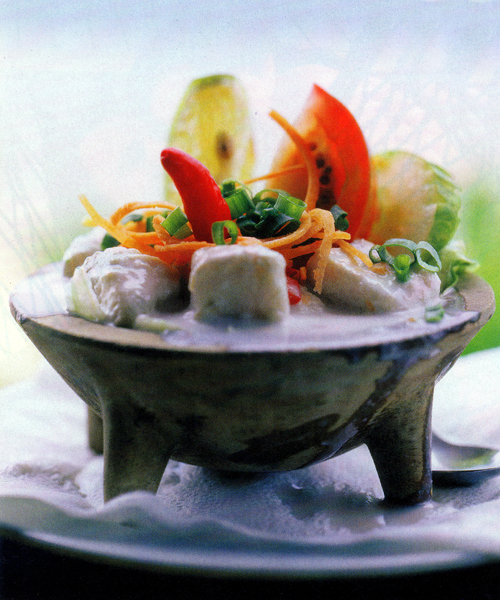
I think I mentioned that while I was on Tokoriki, I tasted a Fijian ceviche-like dish, kokoda (koh-kon-dah), for the first time. It was a revelation. The small chunks of raw reef fish were marinated in the juice of local bush lemons, firming the flesh and turning it opaque. Served with fresh coconut cream and red-pepper flakes in a coconut shell, the fish was as flaky as phyllo pastry and just as delicate. The citrus added depth to the one-note tones of the coconut cream the way tart berries do to vanilla ice cream. I dipped a spoon into the spiced-up cream, trying to identify additional flavors—onion, coriander, maybe green pepper.
I’ve been thinking about kokoda ever since. In fact, you might say I’ve become a little obsessed. I’ve had it several more times but never has it tasted quite as good as that first dish on Tokoriki. Is it the wrong type of fish or perhaps too much—or not enough—of the coconut cream? Or maybe the absence of hot peppers…or too many peppers?
For such a simple dish, there seems to be a lot of variables. So I started taking notes on the blank pages of the book I’m reading, Osa Johnson’s I Married Adventure. “Way too much coconut cream,” I wrote about one. “Rubbery fish,” was the verdict on another. “Strong and oily…barracuda?”
I couldn’t help but think that the best kokoda was the first one I’d had. Then again, I’d probably say that about the first doughnut I’d ever shoved in my mouth as well. Is our first, eye-opening taste of anything always the best, the standard by which all other versions are measured?
I happened to mention this to the chef at Likuliku, Shane Watson, yesterday during lunch. Actually, what I said, when he stopped by the table to ask how everything was (while no doubt wondering, like everyone else here, why I am alone), is, “How come there’s no kokoda on your menu?”
Thing is, Shane is from Australia (Sydney) and gravitates, I’d say, towards what I’d call South Seas Asian food—chili-spiked rice noodles, oyster tempura, seared loin of yellowfin tuna with sesame seeds…that sort of thing. Which by the way, is all quite delicious. Still, I told him, I rather fancied a little kokoda.
Not a problem, mate, he told me. “We’re off for the fish market in Nadi tomorrow. See what we can come up with for you.”
So today, feeling a bit curious, I wandered into Fijiana, Likuliku’s alfresco dining room, a little bit early for lunch. Shane spotted me and invited me back into his kitchen to show me what he’d picked up at the fish market: spangled emperor.
“Lovely, init,” he said.
It was. In fact, I’d say it was the most beautiful dead fish I’d ever seen.
“For the kokoda?”
“That’s it, mate.”
Well, long story short, the dish was spectacular. Far and away the best kokoda I’ve had to date. The spangled emperor was delicate and flaky and tasted sweetly of the ocean, as did the tiny sea grapes, harvested that morning in the Likuliku lagoon, that Shane added to the dish. The coconut cream was light and didn’t overwhelm the fish. Chili oil suggested heat without overpowering the delicate flavors of coriander, shallot, and rice-wine vinegar. It was, without doubt, a kokoda triumph. And what I’m having—again—for dinner tonight.

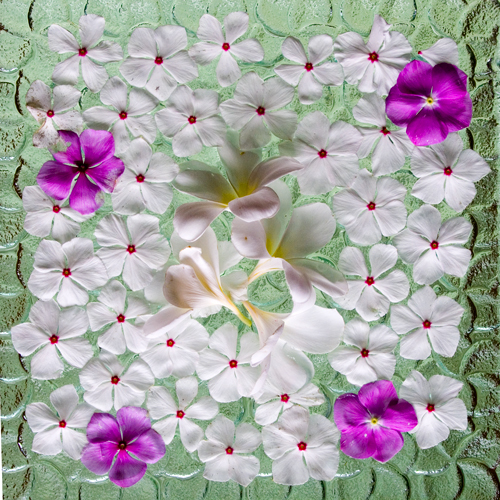
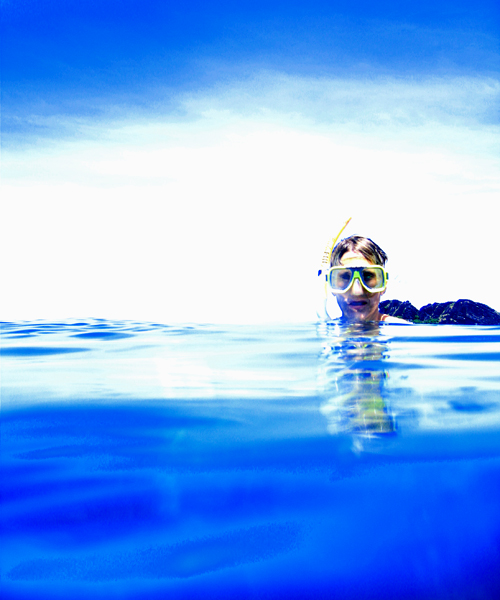
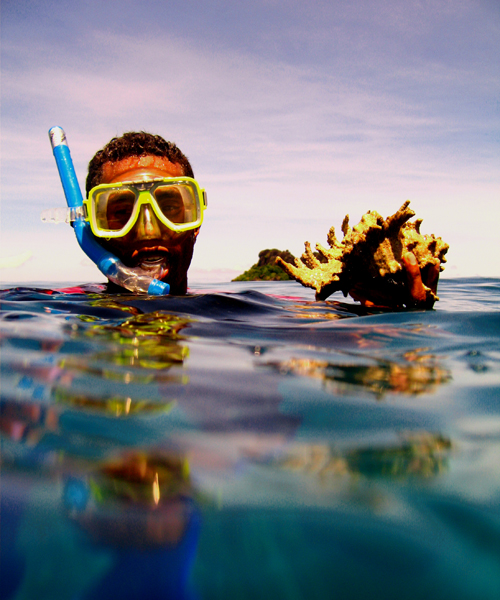
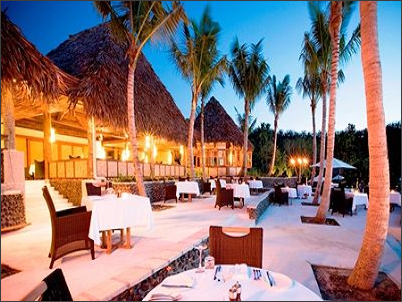

Recent Comments